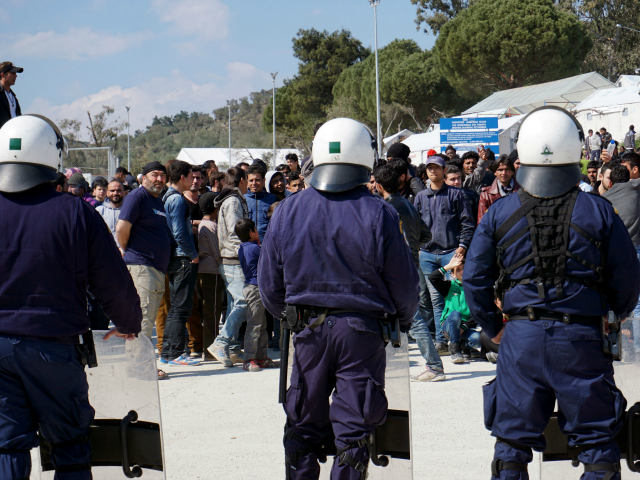An American lawyer is attempting to help clog up Greece’s asylum applications system to prevent migrants from being deported to Turkey.
30 year-old Kavita Kapur came to Greece initially to help cook for migrants who were stuck in Greece after Macedonia closed its borders. She works at the Moria camp on the island of Lesbos, and has been using her fluency in Urdu to communicate with migrants from Pakistan at the camp.
“I really wanted to cook here for the refugees,” she said, but now following the EU-Turkey summit she realises she has another skill migrants can use, reports Zeit Online.
Kapur was trained as a lawyer in the U.S. and has taken it upon herself to advocate for migrants who have not bothered to file an asylum request with the Greek government. Under the Dublin regulations migrants are supposed to register at the first European Union (EU) country they come to, but since last year many have been abandoning the idea and waiting until they get to Germany or Sweden to register in order to claim better benefits.
The migrants at the camp are unhappy about the EU-Turkey deal that came into effect on Monday. Migrants at the Moria camp hold signs for media with slogans like “We Want Freedom”, and all shout in unison “Not Back To Turkey.” A hundred men at the camp protested Tuesday afternoon at the main entrance. They’re calling the camp a prison since they are under guard and aren’t allowed to go out in case they run off.
The first migrants deported back to Turkey were those who had not applied for asylum. Now the rush is on among migrants to apply for asylum and clog up the system to buy themselves time knowing they won’t be deported while their case is awaiting a decision. Kapur is trying to help the migrants apply but is having a tough time as many migrants have no idea if they even applied or not. She said: “They do not get the information or they just don’t understand.”
Since she was unable to register the migrants herself, Kapur decided to make a list of those who wished to apply — around 40 migrants in total. Kapur took the list to the police initially who told her to take it to a government official.
She said that the official simply wasn’t interested in the list because they had no idea if the people were even real and had no way to verify them without a long and arduous task of tracking them all down. The official did give Kapur news that no one would be deported for a day or two, though, because the system was so swamped with new asylum applications.
Migrant helpers often get very involved with the migrants they assist, and sometimes form emotional bonds, but it can be dangerous for them and sometimes for the migrants.
Another American woman wanted to help an illegal Gambian migrant avoid deportation in Vienna, and he repaid her by strangling her to death. So-called ‘no borders’ activists have led migrants to their deaths in their attempts to help them in Greece, proving that trying to go around the law and legal procedure can be a dangerous endeavour.

COMMENTS
Please let us know if you're having issues with commenting.